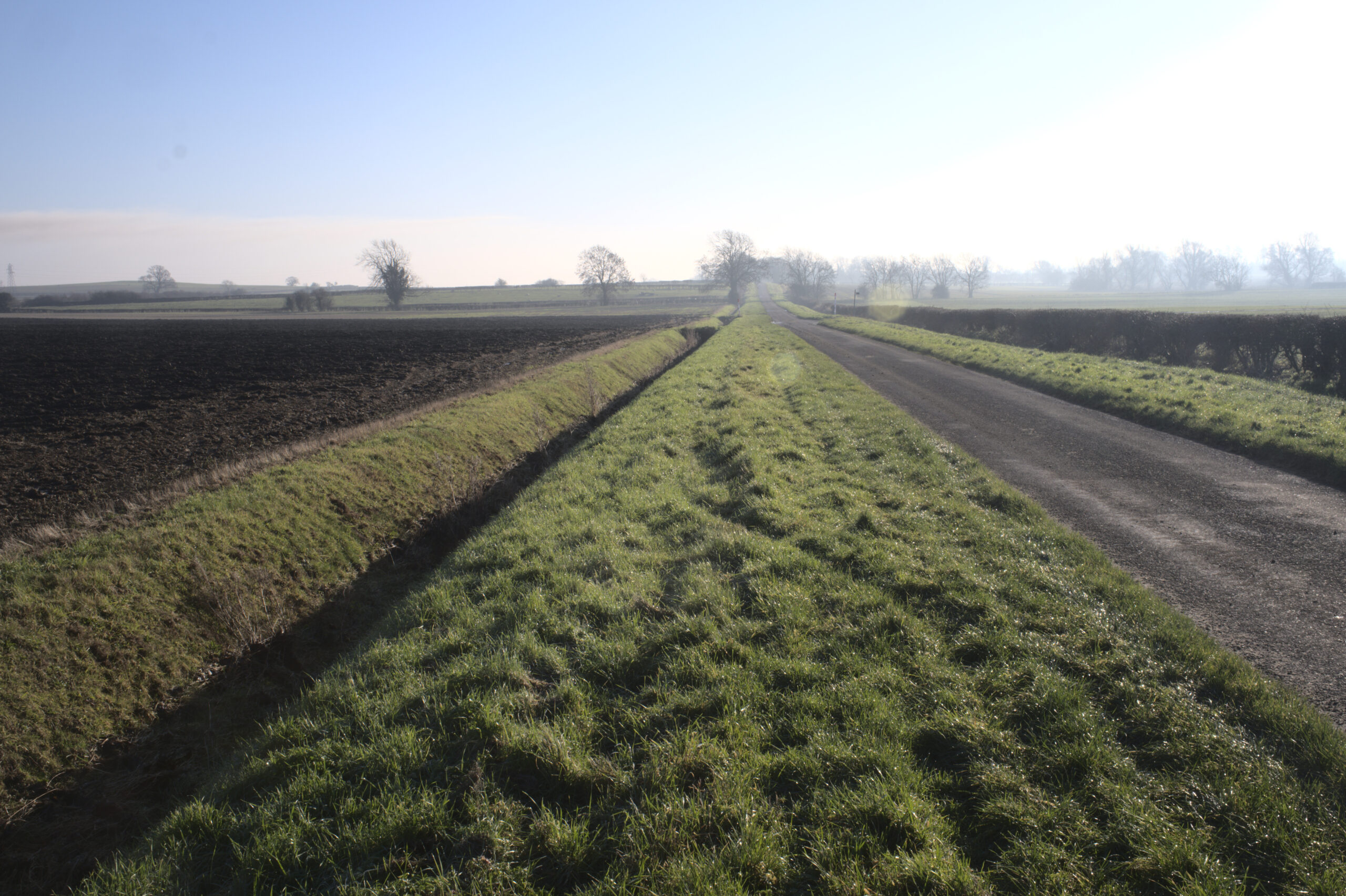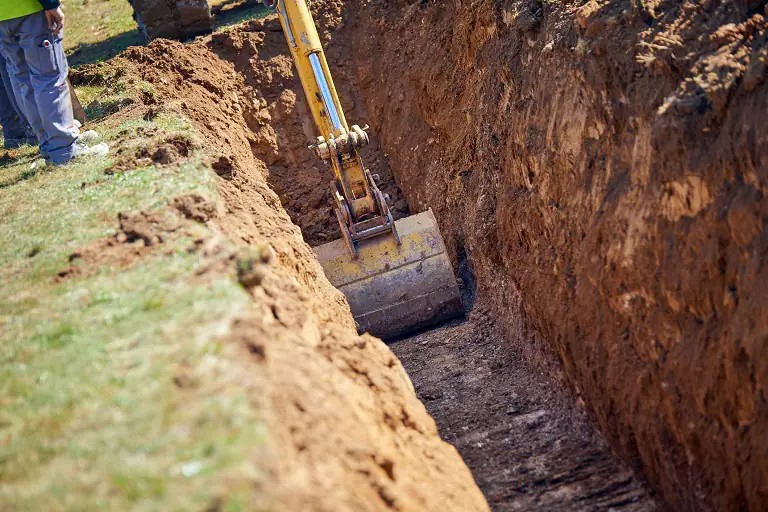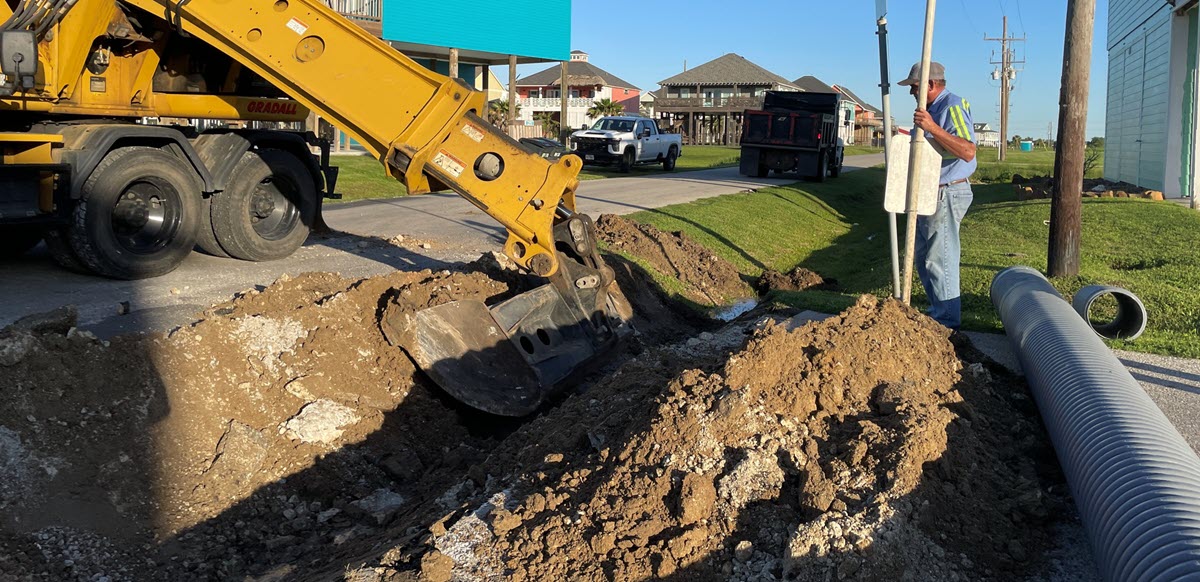Ditch Digging Servicesin Romeo MI
Precision Ditching for Effective Water Drainage
We Are Locally Owned & Operated For Over 37 Years
Contact Us Today!
We Serve Businesses In And Around The Following Cities:
About Ditch Digging Services
Unlock the Hidden Benefits of Commercial Ditching in Romeo
The city of Romeo, renowned for its vibrant business environment and beautiful landscapes, holds an overlooked gem that could greatly enhance your commercial property: ditching services. Despite their seemingly simple premise, these services hold untold potential for optimizing the utility and appearance of your properties, as well as tackling challenging drainage and weather conditions with innovative solutions.
Understanding the Process of Ditching
Ditching is a construction process involving the excavation and removal of earth to create a trench or ditch. It is particularly helpful to handle water runoff, utility lines, and providing solutions to potential landscape-related issues. Opting for the right ditch digging services near me ensures these processes employ the latest technology and industry best practices for maximum benefits.
One of the leading providers of this service in Romeo, D&J Contracting, is known to prioritize precision, efficiency, and safety during their operations. Whether your site requires a simple trench for utilities or an intricate network of channels for sophisticated drainage, experts such as D&J Contracting can help turn these cumbersome tasks into a swift, effortless project.
The Benefits of Commercial Ditching
Commercial properties in Romeo can reap numerous benefits from professional ditching services. The primary advantage is improved drainage, essential in maintaining the structural integrity of your buildings and landscapes. A quality ditching company near me, such as D&J Contracting, can tailor-make a contour-guided ditch network engineered to channel water away from key infrastructures effectively.
Furthermore, employing expert utility ditch digging services ensures that your utility installations are done seamlessly. Ditching services provide proper trenches for laying essential utility lines, such as electrical cables, water pipes, internet, and phone lines, fulfilling all the groundwork needed for your properties’ smooth day-to-day operations.
Real-World Applications in Romeo
Throughout Romeo, many successful businesses have leveraged the prowess of ditch excavation services for their construction projects. Take, for example, a commercial office complex faced with recurring flooding issues during the rainy season. They enlisted a local ditch digging company to construct a network of ditches around their property. The solution has since been effective, channeling rainwater away from essential regions, minimizing waterlogging issues, and improving pedestrian safety during severe weather conditions.
Another instance involves a retail park needing to install new broadband cables. A professional utility ditch digging service was hired who accurately excavated the required ditches without interrupting the park’s operations or creating unnecessary disruptions to visitors. Once the cables were laid and the trenches backfilled, the park was left with minimal landscape disturbance and an upgraded internet service.
With several success stories like these, more businesses around Romeo realize the importance and versatility of professional ditching services and the transformational effects they can have on their properties.
Choosing to Go with the Expertise
Choosing a professional service for ditching needs in Romeo, such as D&J Contracting ensures quality, efficiency, and peace of mind. From simple ditch digging services to comprehensive utility ditching, the expertise and meticulous nature of D&J Contracting have earned clients’ trust through countless successful projects. Their commitment to safety, precision, and client satisfaction positions them as a leading service provider in the city.
As we unravel the manifold benefits of ditching services for your commercial properties in Romeo – improved drainage systems, seamless utility installations, and enhanced property aesthetics – it’s clear that opting for a reputable ditch digging company like D&J Contracting can introduce a new degree of functionality and efficacy to your commercial projects.
The city of Romeo bears witness to the significant benefits derivable from these services, and by making this wise investment, your commercial properties will likely gain increased value and operational enhancement. It’s time to unlock this potential with professional, reliable, and efficient ditching services that promises to transform your commercial lands into more functional, effective spaces. Discover the world of difference ditching can make for your properties today.
Ditch Digging Services Gallery


Call Us Today to receive your Free Quote for
Ditching in Romeo
Serving: Romeo, Michigan

About Romeo, Michigan
A settlement here was originally occupied by the indigenous Chippewa (Ojibwe), an Algonquian-speaking people who were part of a large language family of tribes extending to the Atlantic Coast. Those tribes around the Great Lakes are thought to have migrated to this area by the 12th century.
The early European-American settlers in this area referred to the Chippewa settlement as “Indian Village”. In the 1820s and 1830s more migrant European-American families began to settle in the area, building homes and establishing businesses. They renamed the community “Hoxie’s Settlement”, after a man who opened an inn on Main Street. In 1839, Hoxie’s Settlement became incorporated and was renamed as the village of Romeo. The name was suggested by the wife of local merchant Nathaniel Taylor because it was “short, musical, classical and uncommon.” Romeo celebrated its 175th anniversary on March 9, 2013.
Romeo once served as a trading center for the timber industry, and had many mills processing lumber from the region. Many wealthy timber families resided there. Dozens of stately Victorian mansions survive. Romeo is distinct in the area for having a fairly robust, traditional downtown, which has never suffered a major fire. Because of this, some stores and restaurants downtown have features such as original tin ceilings from the Civil War. In the early 20th century, Romeo was the site of an early business devoted to the new automobile industry: the Detroit Auto Vehicle Company operated here from 1904 until 1908.
The village is in northwestern Macomb County, situated at the southeast corner of Bruce Township, with a portion extending south into Washington Township. Armada Township is adjacent to the east and Ray Township to the southeast. M-53 passes through the east side of the village, leading north 16 miles (26 km) to Imlay City and south 30 miles (48 km) to the eastern side of Detroit.
According to the United States Census Bureau, the village of Romeo has a total area of 2.05 square miles (5.31 km), of which 0.002 square miles (0.005 km), or 0.10%, are water. East Pond Creek crosses the easternmost part of the village, flowing east to the North Branch of the Clinton River, part of the Lake St. Clair watershed.
| Census | Pop. | Note | %± |
|---|---|---|---|
| 1850 | 330 | — | |
| 1880 | 1,629 | — | |
| 1890 | 1,637 | 0.5% | |
| 1900 | 1,580 | −3.5% | |
| 1910 | 1,787 | 13.1% | |
| 1920 | 2,102 | 17.6% | |
| 1930 | 2,283 | 8.6% | |
| 1940 | 2,627 | 15.1% | |
| 1950 | 2,985 | 13.6% | |
| 1960 | 3,327 | 11.5% | |
| 1970 | 4,012 | 20.6% | |
| 1980 | 3,509 | −12.5% | |
| 1990 | 3,520 | 0.3% | |
| 2000 | 3,721 | 5.7% | |
| 2010 | 3,596 | −3.4% | |
| 2020 | 3,767 | 4.8% | |
| U.S. Decennial Census | |||
As of the census of 2010, there were 3,596 people, 1,501 households, and 979 families residing in the village. The population density was 1,780.2 inhabitants per square mile (687.3/km). There were 1,659 housing units at an average density of 821.3 per square mile (317.1/km). The racial makeup of the village was 91.9% White, 3.8% African American, 0.2% Native American, 0.5% Asian, 1.1% from other races, and 2.6% from two or more races. Hispanic or Latino people of any race were 5.7% of the population.
There were 1,501 households, of which 32.2% had children under the age of 18 living with them, 46.2% were married couples living together, 14.9% had a female householder with no husband present, 4.1% had a male householder with no wife present, and 34.8% were non-families. 30.8% of all households were made up of individuals, and 13.6% had someone living alone who was 65 years of age or older. The average household size was 2.36 and the average family size was 2.96.
The median age in the village was 40.9 years. 23.5% of residents were under the age of 18; 7.7% were between the ages of 18 and 24; 24.1% were from 25 to 44; 29.4% were from 45 to 64; and 15.3% were 65 years of age or older. The gender makeup of the village was 46.4% male and 53.6% female.
As of the census of 2000, there were 3,721 people, 1,528 households, and 993 families residing in the village. The population density was 1,842.8 inhabitants per square mile (711.5/km). There were 1,605 housing units at an average density of 794.9 per square mile (306.9/km). The racial makeup of the village was 92.66% White, 4.35% African American, 0.16% Native American, 0.40% Asian, 0.11% Pacific Islander, 0.67% from other races, and 1.64% from two or more races. Hispanic or Latino people of any race were 2.74% of the population.
There were 1,528 households, out of which 33.3% had children under the age of 18 living with them, 48.2% were married couples living together, 13.5% had a female householder with no husband present, and 35.0% were non-families. 31.3% of all households were made up of individuals, and 13.2% had someone living alone who was 65 years of age or older. The average household size was 2.40 and the average family size was 3.04.
In the village, the population was spread out, with 26.1% under the age of 18, 8.2% from 18 to 24, 30.1% from 25 to 44, 21.4% from 45 to 64, and 14.2% who were 65 years of age or older. The median age was 36 years. For every 100 females, there were 87.2 males. For every 100 females age 18 and over, there were 82.5 males.
The median income for a household in the village was $48,015, and the median income for a family was $60,179. Males had a median income of $51,875 versus $27,696 for females. The per capita income for the village was $22,588. About 3.2% of families and 3.9% of the population were below the poverty line, including 6.5% of those under age 18 and 3.9% of those age 65 or over.
The government of the village of Romeo consists of elected and appointed officials. The elected officials include six council members, one president, treasurer and clerk. The appointed officials include the Chief of Police, Department of Public Works Director, and Village Administrator. Currently, the elected clerk also holds the appointed position of Village Administrator. The day-to-day operations of the village are handled by the Clerk/Administrator.
Since the turn of the 21st century, Romeo has worked to upgrade its infrastructure. It has improved the streetscape on Van Dyke Avenue, the main road through the village, and installed a new water tower. It had earlier established one of the few wastewater treatment plants in the region. While most of the metropolitan region receives water and sewage service from the City of Detroit, Romeo independently sustains its own supply of water and manages treatment of village sewage. This was especially valuable during the blackout that occurred throughout the entire northeastern United States on August 14, 2003. Romeo was one of the few areas in the Detroit metropolitan area to have clean running water. More recent infrastructure improvements include a complete renovation of the village water system, and replacement of all the sidewalks throughout the village.
Call Us Today to receive your Free Quote for
Ditching in Romeo
Related Services in Romeo, Michigan
We Serve Businesses In The Following Zip Codes:
48007, 48015, 48021, 48026, 48035, 48036, 48038, 48042, 48043, 48044, 48045, 48046, 48047, 48048, 48050, 48051, 48066, 48071, 48080, 48081, 48082, 48083, 48084, 48085, 48088, 48089, 48090, 48091, 48092, 48093, 48098, 48099, 48225, 48230, 48236, 48310, 48311, 48312, 48313, 48314, 48315, 48316, 48317, 48318, 48397